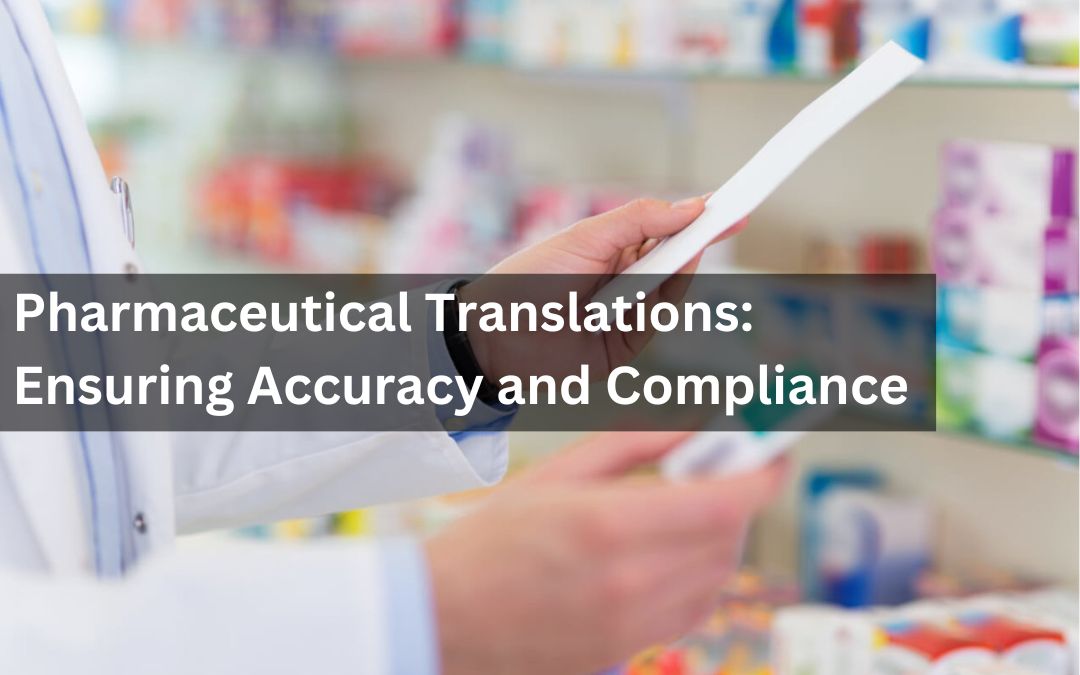The pharmaceutical industry stands at the intersection of health, science, and global commerce. As companies expand their reach across borders, the need for accurate and compliant translations becomes paramount. Inaccuracies in pharmaceutical translations can lead to grave consequences, from regulatory setbacks to serious health risks for patients. Ensuring precision and adherence to international standards is, therefore, not just a business necessity but a moral imperative.
The Criticality of Accurate Translations
Pharmaceutical documents, whether they are clinical trial reports, patient information leaflets, or regulatory submissions, contain complex and technical information. A minor error in translation can lead to a significant misunderstanding, potentially jeopardizing patient safety or causing regulatory delays.
For instance, consider the translation of dosage instructions. An error here could lead to over-dosage or underdosage, both of which can have serious health implications. Similarly, translating the side effects of a drug inaccurately can lead to patients being unaware of potential risks.
Regulatory Compliance: A Moving Target
Different countries have their own regulatory bodies, each with its set of guidelines and requirements. Translations in the pharmaceutical sector must not only be accurate but also compliant with the target country’s regulations. Non-compliance can lead to regulatory setbacks, delays in drug approvals, and even legal consequences.
The Role of Voice-Over Services
While the term “voice-over services” might seem out of place in a discussion about pharmaceutical translations, it’s more relevant than one might think. With the rise of digital health platforms and telemedicine, there’s a growing need to make medical information accessible in various formats, including audio and video.
Voice-over services play a crucial role in this context. Consider, for example, instructional videos on how to administer a particular medication or patient testimonials for a new drug. Accurate voice-over translations ensure that the content is accessible to a global audience, adhering to the same standards of accuracy and compliance as written translations.
Challenges in Pharmaceutical Translations
- Technical Jargon: Pharmaceutical documents are replete with technical terms and jargon. Translators must have a deep understanding of the subject matter to ensure accuracy.
- Cultural Nuances: Beyond linguistic accuracy, translators must also be aware of cultural nuances. What is acceptable or standard practice in one culture might be different in another.
- Keeping Up with Regulations: As mentioned earlier, regulatory compliance is a moving target. Translators must stay updated with the latest guidelines and requirements of different countries.
Ensuring Accuracy and Compliance: Best Practices
- Specialized Translators: It’s essential to work with translators who specialize in pharmaceutical translations. They bring a depth of knowledge and expertise that general translators might not possess.
- Multiple Rounds of Proofreading: Given the high stakes, pharmaceutical translations should undergo multiple rounds of proofreading and quality checks.
- Leveraging Technology: Translation memory tools and glossaries can ensure consistency across documents, especially for recurring terms and phrases.
- Regular Training: Translators should receive regular training to stay updated with the latest industry developments and regulatory changes.
- Feedback Loop: Establishing a feedback loop with clients can help identify areas of improvement and refine the translation process over time.
Conclusion
In the world of pharmaceuticals, where the stakes are incredibly high, there’s no room for error. Translations must be accurate, compliant, and tailored to the target audience’s linguistic and cultural context. As the industry evolves and embraces new formats of content delivery, services like voice-over translations will become increasingly relevant. By adhering to best practices and recognizing the criticality of accurate translations, pharmaceutical companies can ensure that their products and information are both safe and accessible to a global audience.

